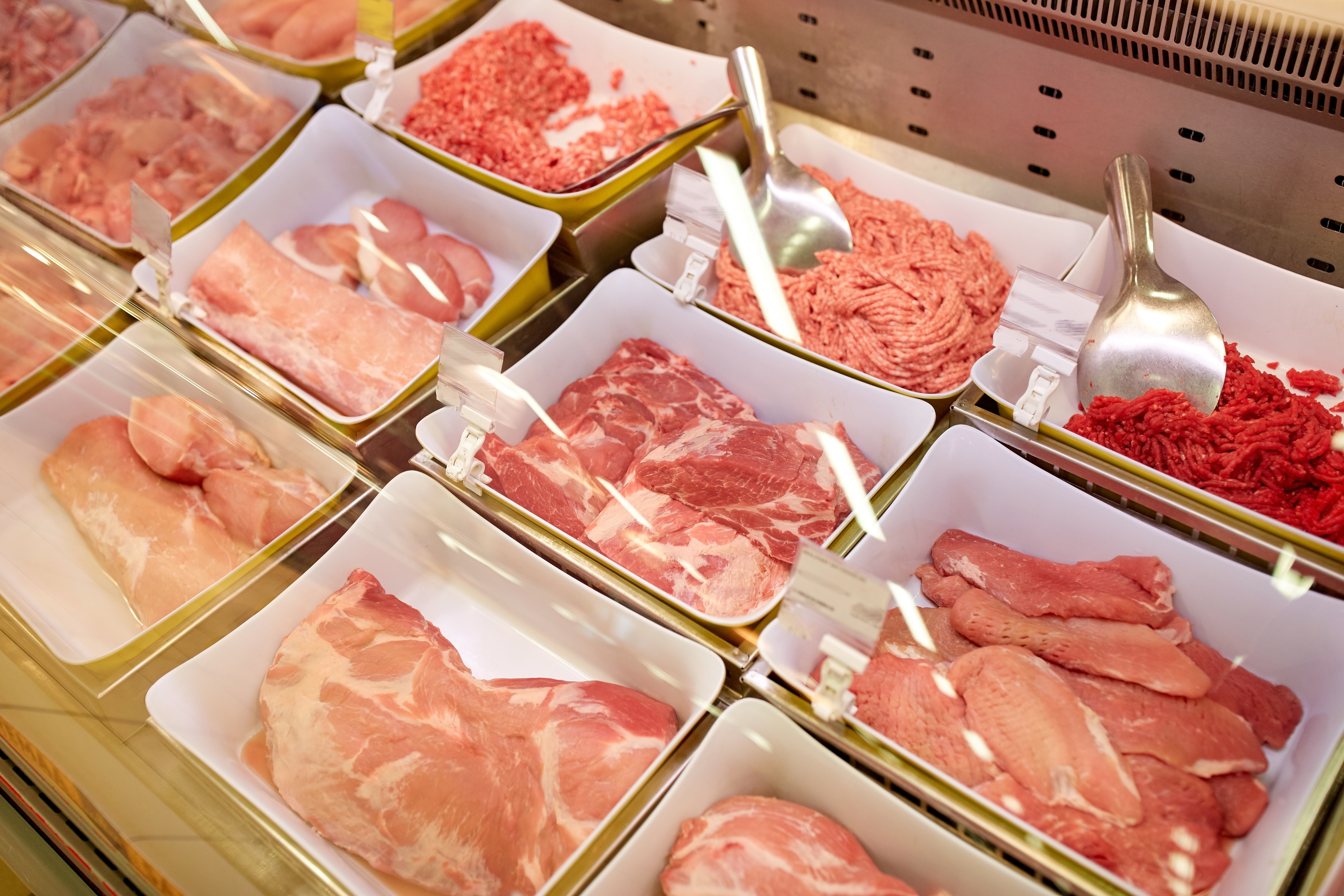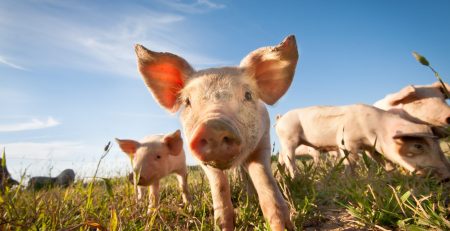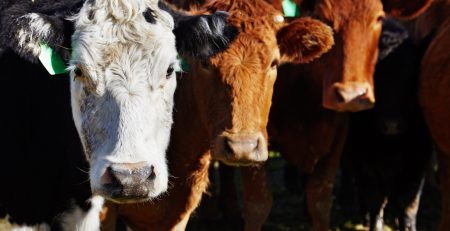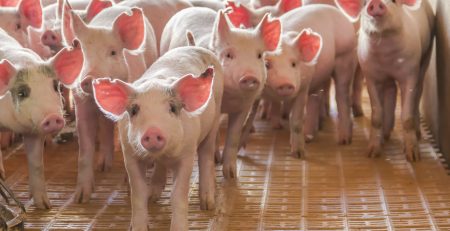Defense Production Act Allows Pig Farmers to Continue Life’s Work
Pig farmers applaud President Donald Trump’s Executive Order to invoke the Defense Production Act to extend needed support to meat processors to ensure an abundant supply of protein for Americans.
The COVID-19 pandemic has caused a great upset in the U.S. food and agriculture industry. “Everyone in the food supply chain – from farmers to packing plant workers – wants to meet consumer demand for pork, and we are hopeful that President Trump’s Executive Order is a step in the right direction,” Cheryl Day, executive vice president of the Ohio Pork Council, said in a statement.
By triggering the Defense Production Act, the federal government will prioritize the continuity of pork processing plant operations, the National Pork Producers Council said in a statement.
“We must safely stabilize the current plant capacity challenge and overcome other major hurdles facing the nation’s pork production system, one that employs 550,000 workers and generates $23 billion in personal income across rural America. Hog values have plummeted to virtually zero and hog farmers are facing liquidation of their farms and other assets without immediate relief, including expanded financial aid without payment limitations,” said Howard “A.V.” Roth, NPPC president and a Wisconsin pig farmer, in a statement.
Dwight Mogler, an Iowa pig farmer, said he hopes this action will mean the pork industry can get daily marketing of hogs back to the level needed to prevent farmers from having to euthanize pigs.
“Raising pigs to provide protein to the world is our life’s work,” Mogler said.
Until the plants are back up to full speed, Roth said coordinated partnership between the industry and federal, state and local authorities to euthanize pigs in an orderly, ethical and safe way is critical.
Worker Safety is Paramount
COVID-19 testing swabs and reagents as well as PPE equipment continue to be available in limited supply, but Mogler said the meat processing industry should receive priority for access to these limited supplies.
“Health care workers are still priority #1. Meat processing workers are priority #1A,” Mogler said. “I hope the Defense Production Act means meat processors will be able to continue to press forward with their plans to reopen closed facilities without being bogged down in assessing all the legal liabilities associated with their actions.”
Although there are more questions than answers regarding the details of this action, Mogler said he hopes details will be forthcoming soon.
“If the plants operate in good faith with the health and safety of their employees as the first priority, then I hope this act means the federal government will protect them from any future liability that would result from their decisions. After all, they must make decisions based on the best information they have available today. Business needs to get done. People need to eat,” Mogler said.
The Centers for Disease Control and Prevention (CDC) of the Department of Health and Human Services and the Occupational Safety and Health Administration (OSHA) of the Department of Labor have put out guidance for plants to implement to help ensure employee safety to reopen plants or to continue to operate those still open, USDA said in a release.
“Maintaining the health and safety of these heroic employees in order to ensure that these critical facilities can continue operating is paramount,” said Secretary of Agriculture Sonny Perdue in a statement. “I also want to thank the companies who are doing their best to keep their workforce safe as well as keeping our food supply sustained. USDA will continue to work with its partners across the federal government to ensure employee safety to maintain this essential industry.”
Under the Executive Order and the authority of the Defense Production Act, USDA will work with meat processing to affirm they will operate in accordance with the CDC and OSHA guidance, and then work with state and local officials to ensure that these plants are allowed to operate to produce the meat protein that Americans need. USDA will continue to work with the CDC, OSHA, FDA, and state and local officials to ensure that facilities implementing this guidance to keep employees safe can continue operating.
The U.S. meat industry is already taking extraordinary steps to ensure worker safety, including COVID-19 testing, temperature checks, use of personal protective equipment and social distancing of employees, the U.S. Meat Export Federation (USMEF) said in a statement.
“But further action is needed to stabilize our meat supply chain, and USMEF greatly appreciates the Trump administration’s prioritization of safe and consistent meat production and processing during this difficult time,” said Dan Halstrom, USMEF president and CEO, in a statement.
Content within the Farm Journal Forum is the property of Farm Journal, Inc and protected by copyright.











